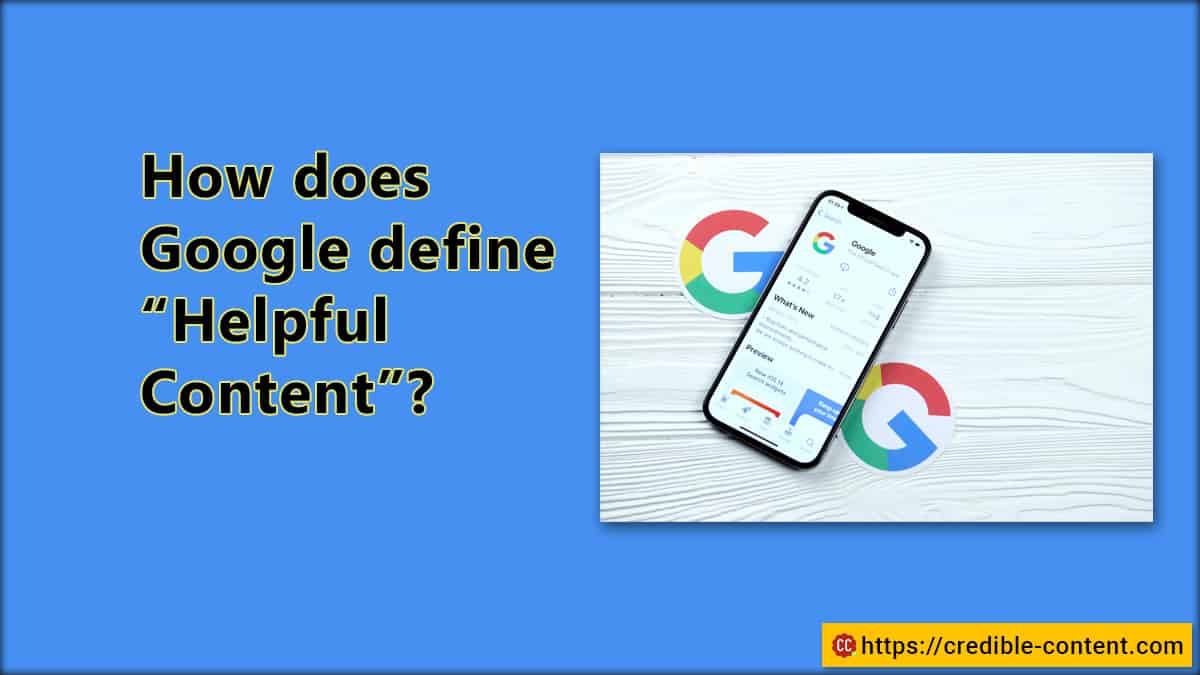The news of Google rolling out the new “helpful content” algorithm update is all over the Internet.
I too covered the news a few days ago.
Although content has been at the center stage of every algorithm that Google has rolled out, it is for the first time that the term “helpful content” has been specifically highlighted.
According to Google, in a nutshell, “helpful content” means the content
- Is created for a specific, targeted audience.
- Delivers what the searcher is looking for.
- Shows expertise.
- Portrays trustworthiness and credibility.
In its blog post on the “helpful content” algorithm update Google has shared some information on what it considers helpful content.
Google suggests that you write and publish people-first content.
Don’t obsess over your search engine rankings.
Don’t write content to make search engine algorithms happy.
There are certain indicators that can tell the Google algorithm that you are writing content for the search engine and not for people.
Google asks you to make the following observations when writing and publishing content on your website or blog:
- Do people who directly come to your website (not from Google) find your content helpful and useful?
- Does your website content have a central theme around which you have published detailed content?
- Do you write articles and blog posts with first-hand experience, and do you share in-depth knowledge of your field?
- Do people find enough information such that they no longer have to search for the topic somewhere else?
- Do people feel satisfied after reading what you have published?
What does Google want you to stop doing when publishing content?
- Stop publishing different versions of the same topic hoping that one of the versions will rank well on Google.
- Don’t scrape content from other websites just to fill your website or blog with content.
- Don’t use topics just so that they rank well on Google.
- Don’t use automated tools to write and publish content on your website and blog.
- When creating content from other websites, don’t just merely summarise – add more value.
- Don’t extend your article or blog post to a certain word count just so that it ranks well.
- Don’t write about a niche topic unless you are an expert in it or you have in-depth knowledge about the topic.
- Don’t answer questions for which you don’t have a definite answer such as a health-related question or the release of a movie.
Other “helpful content” recommendations by Google
- Write blog posts and articles from different perspectives, such as, both pros and cons of using a product or a service.
- When reviewing a product, go beyond what the provider or the manufacturer says, and share your own first-hand experience.
- Describe in detail how a product performs in different areas – for example, how a mixer grinds different categories of vegetables.
- Put yourself in the shoes of your readers – would you trust the information you are sharing on your website or blog?
- Are you sourcing facts and statistics from authoritative websites and blogs?
- Doublecheck your content for easily verified factual errors.
- As much as possible, provide information that is original, research-based, and well analysed.
- Cover exhaustive information about a topic.
- Deliver in the body content what you have promised in the headline or the meta title.
- Create content people would like to bookmark, or share, or recommend.
- Link to useful information on your own website or other authoritative websites.
Google recommends focusing on search intent
People search with different needs.
In this document Google shares some major motivations with which people use the search engine.
- I want to know: People are looking for information, knowledge, and news.
- I want to go: People are mostly looking for local businesses where they can go and entertain themselves or have food.
- I want to do: This is primarily how-to content when people want to solve a problem and are looking for a solution.
- I want to buy: They are ready to buy, and you just need to keep them focused.
You may also like to read: Why search intent is most important when writing content for your website

